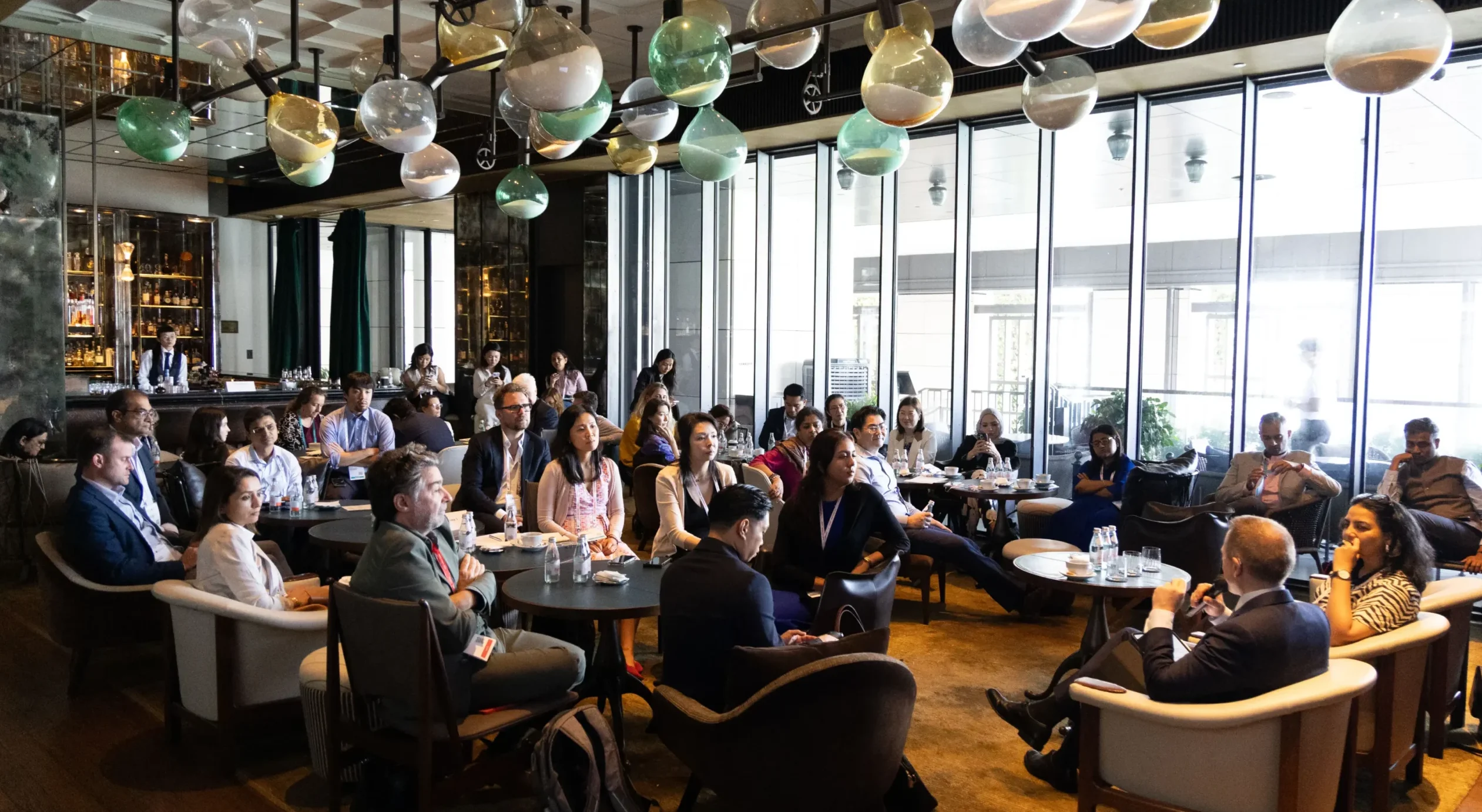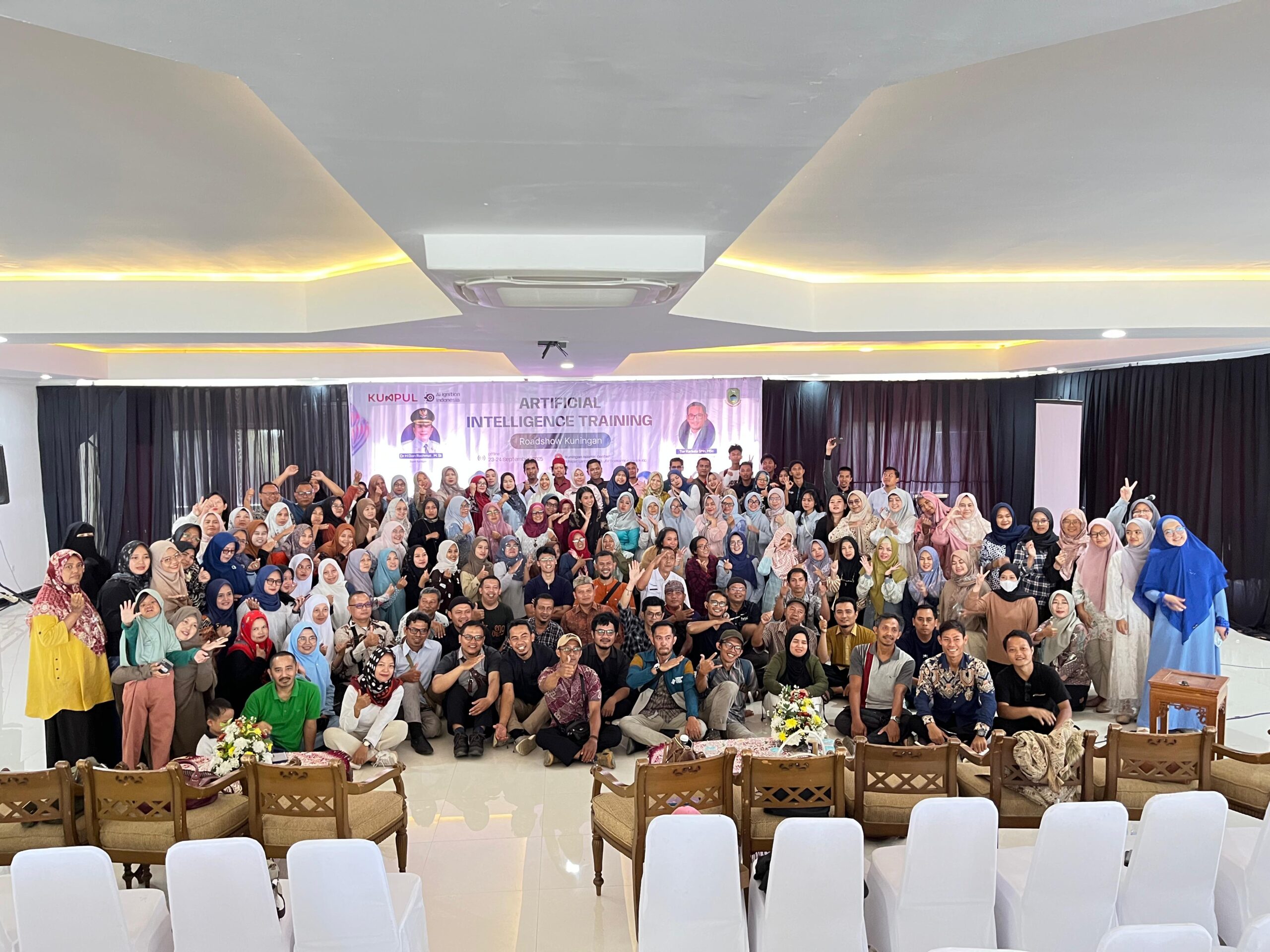On 11 September 2025, Sarita Anggun Kinanti, Associate Director of KUMPUL Impact, led a closed-door discussion at the AVPN Conference 2025 in Rosewood, Hong Kong SAR, China. She facilitated a conversation among leaders from development agencies, philanthropy, impact funds, academia, global networks, and civil society to examine the structural challenges that shape investment flows into climate and health.
She opened the session by highlighting how limited funding restricts experimentation and early validation. Several participants shared that many frontline organizations operate in climate-sensitive regions where conditions shift quickly, creating operational risks that are difficult to mitigate. This situation reduces investor confidence and narrows opportunities for scale.
Global Vulnerability and Investment Barriers
This challenge becomes more significant when viewed alongside global vulnerability data. UNEP reported in 2024 that more than 3.3 billion people live in areas with high climate vulnerability. WHO projected an additional 250,000 climate-related deaths per year between 2030 and 2050 from malnutrition, heat stress, and vector-borne diseases. These figures illustrate the need for financing models that align with community resilience.
Participants noted that one barrier to investment is the perception of low profitability and unclear return pathways. Many early stage solutions struggle to move beyond pilot phases because investors look for stronger evidence and more predictable risk structures.
The speakers underscored that the climate and health ecosystem requires clearer policy frameworks, stronger coordination, and flexible financing tools that support communities facing evolving climate and health risks.
Perspectives from Regional and Global Leaders
The discussion included contributions from Natou BAMBA COLON, Senior Mobilization and Partnerships Advisor at Agence Française de Développement AFD, Katie Carrasco, Head of ESG and Gender Co Lead at the Global Innovation Fund, Renzo Guinto, Associate Professor and Lead for Planetary Health at SingHealth Duke NUS Global Health Institute, Angela Chaudhuri, Chief Catalyst at Swasti, Aravindan Srinivasan, Director for Thematic Collaborations at AVPN, Bharati Chaturvedi, Founder and Director of Chintan Environmental Research and Action Group, Carsten Schicker, CEO of the World Health Summit, Diana Guzman, Group Chief Sustainability Officer and Chair of the Prudence Foundation at Prudential plc, and Madhav Joshi, Chief Executive Officer of the India Health Fund.
They emphasized several enabling conditions that could make climate and health more investable. These included stronger risk reduction mechanisms, clearer pathways for returns, supportive public policy, adaptable funding models for frontline conditions, and a perspective that positions healthcare as essential infrastructure.
Pathways to Strengthen Investment in Climate and Health
Safer funding mechanisms
Early stage grants were highlighted as an important tool to help organizations test ideas. Catalytic instruments such as blended finance or first loss capital can reduce perceived risks and draw commercial investors into unfamiliar sectors.
Supportive government roles
The World Bank Infrastructure Outlook 2023 noted that investor confidence increases when regulations are clear and coordination across ministries is well established. Participants shared that aligned health and climate strategies help create more predictable environments for implementation.
Flexible funding models
Frontline actors often operate in locations where needs shift quickly. Funding structures that allow adjustments based on new data and changing community priorities were viewed as essential for long term resilience.
Proof of concept
Pilot funding helps innovators demonstrate feasibility. The Global Innovation Hub reported in 2024 that validated early stage projects are more likely to attract follow on capital, especially in climate responsive health solutions.
Cross border and cross sector collaboration
Climate and health risks affect multiple systems. Participants highlighted the value of shared research, coordinated regional learning, and financing platforms that connect governments, private institutions, and civil society.
Reframing healthcare
Speakers agreed on the importance of treating healthcare as core public infrastructure. When extreme weather or new disease patterns emerge, health facilities become the first point of support for communities.
The session at the AVPN Conference 2025 reinforced the importance of connecting practitioners who work at the intersection of climate and health. Through a focused and data informed discussion, participants identified financing mechanisms that can strengthen resilience for communities across Asia. The conversation also reaffirmed the need for coordinated action that links policy, investment, and on the ground realities.
Grow Locally, Expand Globally with KUMPUL
As Indonesia’s leading entrepreneurship ecosystem enabler, KUMPUL accelerates growth by connecting entrepreneurs with strategic networks, exclusive resources, and expert insights.
We strengthen local communities while facilitating two-way global market access, helping international businesses tap into Indonesia’s dynamic ecosystem, and empowering local entrepreneurs to expand globally.
Through impactful collaborations with key industry players, KUMPUL enables entrepreneurs to scale efficiently, compete globally, and create meaningful impact.
Ready to be part of this journey? Complete this form and join KUMPUL in shaping the future of entrepreneurship!





